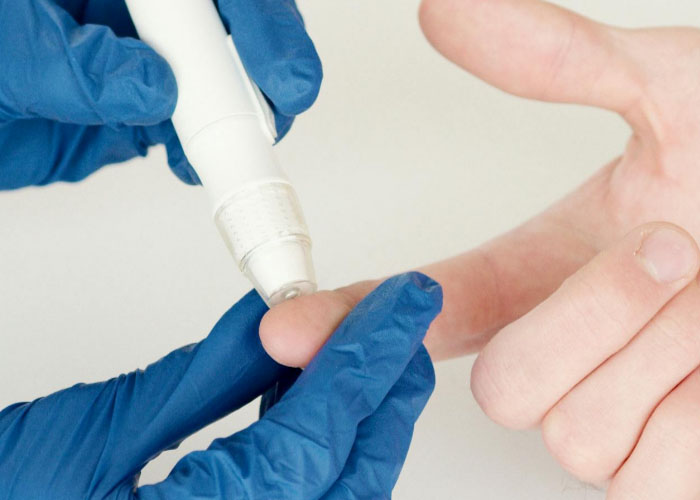Reversing Type 2 Diabetes and Losing Weight: A Comprehensive Guide
Type 2 diabetes is a chronic condition characterized by high blood sugar levels due to insulin resistance or insufficient insulin production. Unlike type 1 diabetes, type 2 diabetes is often associated with lifestyle factors and is, in many cases, reversible through diet, exercise, and lifestyle modifications. This article provides a detailed guide on how to reverse type 2 diabetes and lose weight effectively.
Understanding Type 2 Diabetes and Its Reversal
Type 2 diabetes occurs when the body becomes resistant to insulin, a hormone that helps regulate blood sugar levels, or when the pancreas fails to produce enough insulin. Over time, elevated blood sugar levels can lead to serious health complications, including heart disease, nerve damage, and kidney failure.
Reversing type 2 diabetes involves improving insulin sensitivity and reducing blood sugar levels to a non-diabetic range. This can often be achieved through significant and sustained lifestyle changes.
Key Strategies to Reverse Type 2 Diabetes and Lose Weight
Adopt a Healthy, Balanced Diet
Low-Carb, High-Fiber Foods: Reducing carbohydrate intake can help lower blood sugar levels. Focus on complex carbs from vegetables, legumes, and whole grains while avoiding refined sugars and processed foods.
Increase Protein and Healthy Fats: Incorporate lean proteins (e.g., fish, poultry, tofu) and healthy fats (e.g., avocados, nuts, olive oil) to stabilize blood sugar and promote satiety.
Portion Control: Eating smaller, balanced meals throughout the day can prevent blood sugar spikes and promote weight loss.
Mindful Eating: Pay attention to hunger and fullness cues to avoid overeating and choose nutrient-dense foods that support overall health.
Regular Physical Activity
Aerobic Exercise: Activities such as walking, jogging, cycling, and swimming can help lower blood sugar levels and improve insulin sensitivity. Aim for at least 150 minutes of moderate aerobic exercise per week.
Strength Training: Building muscle through resistance exercises (e.g., weight lifting, bodyweight exercises) can enhance glucose uptake and improve metabolic health.
Consistency: Regular, consistent exercise is more effective than sporadic, intense workouts. Find activities you enjoy to maintain long-term adherence.
Weight Management
Set Realistic Goals: Aim for gradual weight loss, which is more sustainable and beneficial for blood sugar control. A weight loss of 5-10% of your body weight can significantly improve insulin sensitivity.
Track Progress: Use a journal or app to monitor food intake, physical activity, and weight loss progress. Adjust your plan as needed to stay on track.
Monitor Blood Sugar Levels
Regular Testing: Keep track of your blood sugar levels to understand how different foods and activities affect your diabetes. This can help you make informed decisions about your diet and exercise routines.
Consult Healthcare Providers: Work with your doctor to establish target blood sugar ranges and adjust medications as needed.
Stress Management and Sleep
Reduce Stress: Chronic stress can negatively impact blood sugar levels. Practice relaxation techniques such as deep breathing, meditation, yoga, or spending time in nature.
Adequate Sleep: Aim for 7-9 hours of quality sleep per night. Poor sleep can disrupt blood sugar regulation and increase insulin resistance.
Behavioral Changes and Support
Education: Learn about diabetes management and healthy lifestyle practices. Knowledge empowers you to make better choices.
Support Systems: Engage with support groups, either in person or online, for motivation and shared experiences. Consider working with a dietitian or diabetes educator.
Medical Interventions and Professional Guidance
While lifestyle changes are critical, some individuals may also require medical interventions to manage their diabetes effectively:
Medications: Medications such as metformin can help control blood sugar levels. Always follow your healthcare provider’s recommendations.
Bariatric Surgery: For individuals with severe obesity, bariatric surgery may be an option. This can lead to significant weight loss and improvement in diabetes symptoms.
Regular Check-Ups: Schedule regular appointments with your healthcare provider to monitor your progress and adjust your treatment plan as needed.
Success Stories and Research
Research and real-life success stories demonstrate that type 2 diabetes can be reversed through dedicated lifestyle changes. Studies have shown that a combination of diet, exercise, and weight loss can lead to significant improvements in blood sugar control and even remission of diabetes.
Conclusion
Reversing type 2 diabetes and losing weight is a challenging but achievable goal with the right approach. By adopting a healthy, balanced diet, engaging in regular physical activity, managing stress, and seeking professional guidance, individuals can significantly improve their health outcomes. Consistency and commitment to lifestyle changes are key to achieving and maintaining these health benefits. Start today by making small, manageable changes, and gradually build towards a healthier, diabetes-free life.

